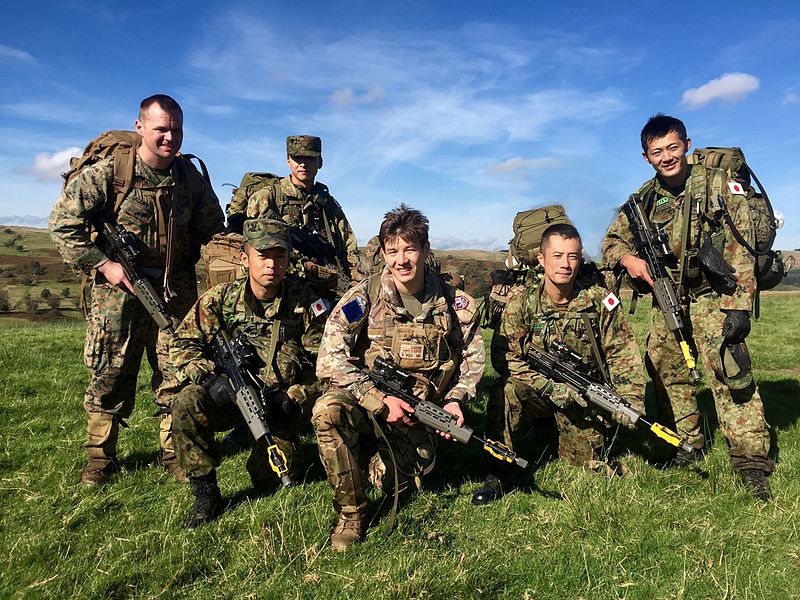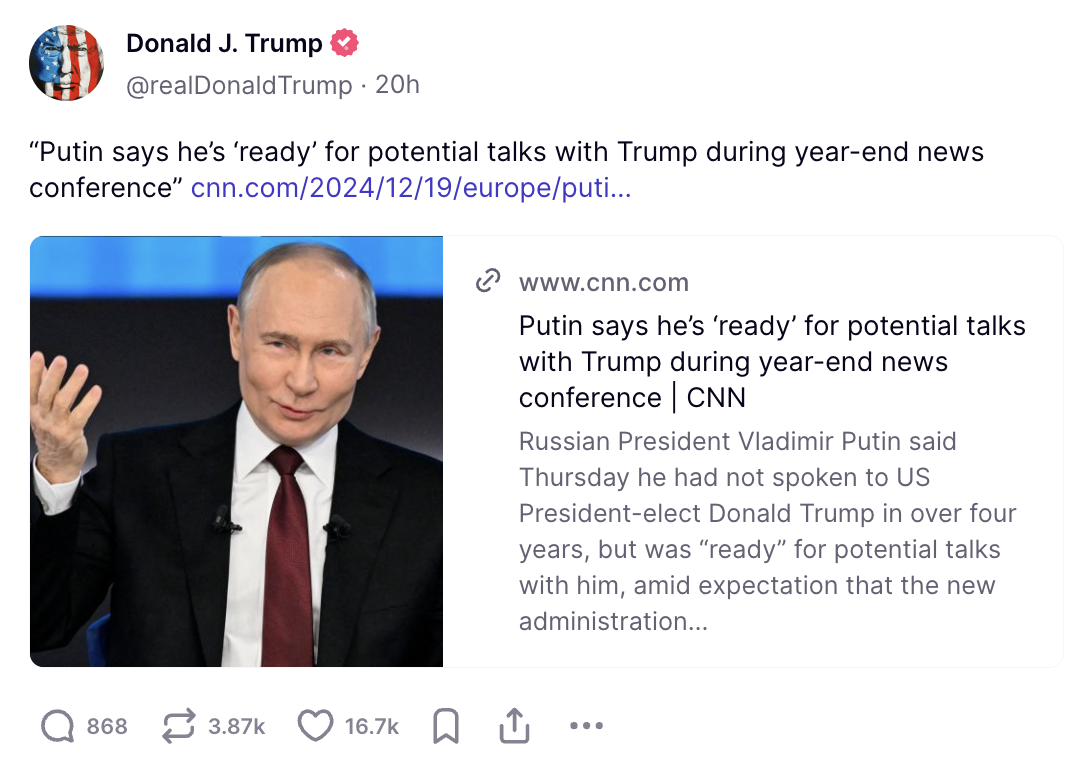
Image by UK in Japan- FCO
Please Follow us on Gab, Parler, Minds, Telegram
It is hard to remember a time when the UK had an independent global viewpoint or believed it should do so. But it appears that Brexit is causing it to flex long forgotten muscles.
Barring the Falkland’s war in 1982, and Prime Minister Wilson’s refusal to join the US in its Vietnamese adventure in the late ‘60s, the UK as a global player, has been moribund. The past 40 years has seen a slow decline in the UK’s capacity. Driving that decline has been a complete collapse of corporate will on the part of the UK’s civil and military establishment.
Even in 1982, at the start of the Falklands crisis, Mrs. Thatcher was being worn down by the bureaucrats, telling her that getting the islands back from the near Fascist dictatorship of Argentina was impossible and that the UK was not able to launch an expedition, let alone a war, to reclaim the islands. Gloom engulfed No10 Downing Street. John Nott, the then Defence Minister, was convinced of failure, when, in full dress uniform, gold braid sprouting from every fiercely pressed crease, entered the First Sea Lord, Admiral Sir Henry Leach. Leach had witnessed the sinking of his father’s battleship, HMS Prince of Wales, in 1941 and had been an officer during the last great gun naval battle the Royal Navy fought, the sinking of the Scharnhorst.
Dismissing the doubters and, in what was described by Knott as his ‘Nelsonian’ mode, he pressed the Prime Minister into agreeing to the task force. When she asked him why, he responded, “if we don't, or if we do it half-heartedly and are not completely successful, we should be living in a different country which counts for very much less”. Thatcher immediately warmed to him and the rest is history.
CDMedia is having to harden our servers and its expensive, shameless plug for support...we are fighting the good fight but it's difficult at the moment... DONATE!
Right now, we are at a less dramatic moment, but with Brexit we are again dealing with an establishment for which self-abnegation is a way of life as well as a state of mind. But it doesn’t have to be so, and others elsewhere, not having drunk the depressive kool aid can see it. That is both our friends and our opponents.
Whilst there has been a fair amount of comment about the UK taking the opportunity of Brexit to apply to join the Trans-Pacific Partnership (TTP) or as it is now known as CPTPP or the Comprehensive and Progressive Agreement for Trans-Pacific Partnership, what is less known is the new a burgeoning military alliance between Japan and the UK. On February 3rd a joint meeting between the UK and Japan, involving the Foreign and Defence Ministers of the respective countries ended in the UK confirming that it was to send a naval battle group to the far east, via, contentiously the South China Sea. In the joint communique the message stated was “They also shared the view that this visit will contribute to a free and open Indo-Pacific”; the message heard, particularly in Peking was, clear. There is only one threat to a free and open Indo-Pacific region and that is China.
The Chinese response to these beefed up defence arrangements between the UK and Japan was candid, “The Chinese side believes that the South China Sea should not become a sea of great power rivalry dominated by weapons and warships. The real source of militarisation in the South China Sea comes from countries outside this region sending their warships thousands of kilometres from home to flex muscles. The Chinese military will take necessary measures to safeguard its sovereignty, security and development interest as well as peace and stability in the South China Sea”.
Given that the last time a RN warship entered the area, HMS Albion in 2018, it was harassed by a Chinese frigate and buzzed by military helicopters, when the carrier group arrives it can expect a warm reception from the Chinese navy.
The meeting did not only talk about military co-operation, but also made a point about discussing and commenting upon the way that China is behaving towards its Uighur minority and its continued breach of Treaty agreements as to the citizens of Hong Kong.
China, itself trying to join the CPTPP, is very concerned that the UK’s accession to the trade agreement will make it near impossible for the Chinese to take a formal part in it and is strengthening the hand of those opposed to China’s growing hegemony in the region. It is also concerned that its hopes over the Biden presidency are not coming to instant fruition. Trump’s anti diplomacy when it came to China has been replaced by a return to diplomatic language, yet, it has not seen a supine State department. The US navy will be, at least in part, sailing alongside the UK carrier group in the region after all.
Excepting the EU, which is still in denial about the litany of human rights abuses and China’s behaviour over Covid (the latest just-for-TV propaganda show with the WHO mission to Wuhan being a case in point) much of the world is finally falling out of love with the Dragon.
As always with China, one must remember that memory is a powerful force. When talking to Chinese diplomats it is always handy to have more than a cursory knowledge of the behaviour of Jardine Mattheson and the Opium Wars, better still, to be aware of the joint Japanese/British operation at the taking of Peking during the Boxer rebellion. Their fears of UK’s military presence are as much about the 19th century as it is the 21st.
But Chinese intransigence on the matter of Taiwanese independence may be the most important single aspect. Throughout January, the Chinese air force has been breaching Taiwanese airspace almost daily, and the Peoples Liberation Army has been conducting large scale exercises in the area. One official Chinese military spokesman, Wu Qian, stated that, ‘They are a solemn response to external interference and provocations by Taiwan independence forces,’ and added, ‘We warn those Taiwan independence elements: those who play with fire will burn themselves, and Taiwan independence means war.’
The UK’s pivot east, is not just in trade, but it is also stepping up to its role as a global security partner, outside of its NATO and EU defined place. It is about time that we did so, if we are the world’s 5th biggest economy and we claim to be able to operate with effective soft power that is one thing, but a little glimpse of not so soft power can have a surprisingly tonic effect.
The UK’s history with Japan has been chequered, but we have been friends far longer than we were enemies. That friendship is valuable both for us and the free world, we must keep that way.
Back in 1905 there were riots in the shipbuilding city of Newcastle. On the other side of the world the Imperial fleets of Russia and Japan were engaged in the Battle of Tsushima, the first great naval clash of the ironclad era. As the news came to the Armstrong Whitworth yards during the battle, part of their shipyards had constructed many of the Japanese Imperial fleet, another part had done so for the Russian equivalent. As the radio broadcast news of the battle came through, street fights broke out amongst the employees, with each standing up for their products. The Japanese won that battle and emerged as a great Asian power. Today China is no longer a sleeping giant, and the world must act to ensure it does not become too powerful. As then, the growing friendship between Tokyo and London must be encouraged and become a bulwark of a global defence of freedom, trade and democracy, whatever the hidebound, technocratic forces of establishment torpor may say.

























